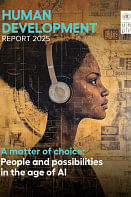Blood Smuggling
This time it is not cattle. Neither it is women or children. The northern part of the country has woken up to a new smuggling danger - human blood. A newspaper informed us last week of an international smuggling network's use of the greater Rangpur as its route for smuggling blood from across the border. Reportedly working in tandem with hospitals and clinics in Coochbehar and divisional town like Siliguri, the members of an international smugglers' racket buy blood at cheaper price at the other side of the border. Brought to Bangladesh mostly under cover of icecream boxes these blood bags are then sold to different medical facilities including Rangpur Medical College.
Blood could be the most disastrous of all smuggled items. In all likelihood these medical facilities use this supply of blood without screening it, leaving patients exposed to all sorts of health hazards. Mind you, the hazards of 'untested' blood is no longer limited to allergy or what we have generally come to know as 'reaction'. There lurks a very young and potent predator in the name of AIDS. This is where this news comes to worry us most at the beginning of 1998.
And it is not only in the pages of newspapers that we get to know about this steady supply of untested blood. Health Minister himself expressed his concern the other day lending credence to this rather new development in the horizon of health sector hazards.
Now the question is can we check this evil? With such an expansive and largely unguarded common border with India, it is impossible to stop smuggling. But then there is very little to muddle blood smuggling with any other type of smuggling simply because it involves people's health. Many feel the problem suffers from a serious legal insufficiency when it comes to meting out punishment to those who are involved in smuggling and also those who are involved in that part of the health sector which exclusively deals with the preservation, collection and infusion of blood.
We suggest a power trinity of three ministries - Health, Home and Law - to combat this evil. Hanging fire might prove too costly a damage to repair.

 For all latest news, follow The Daily Star's Google News channel.
For all latest news, follow The Daily Star's Google News channel. 



Comments